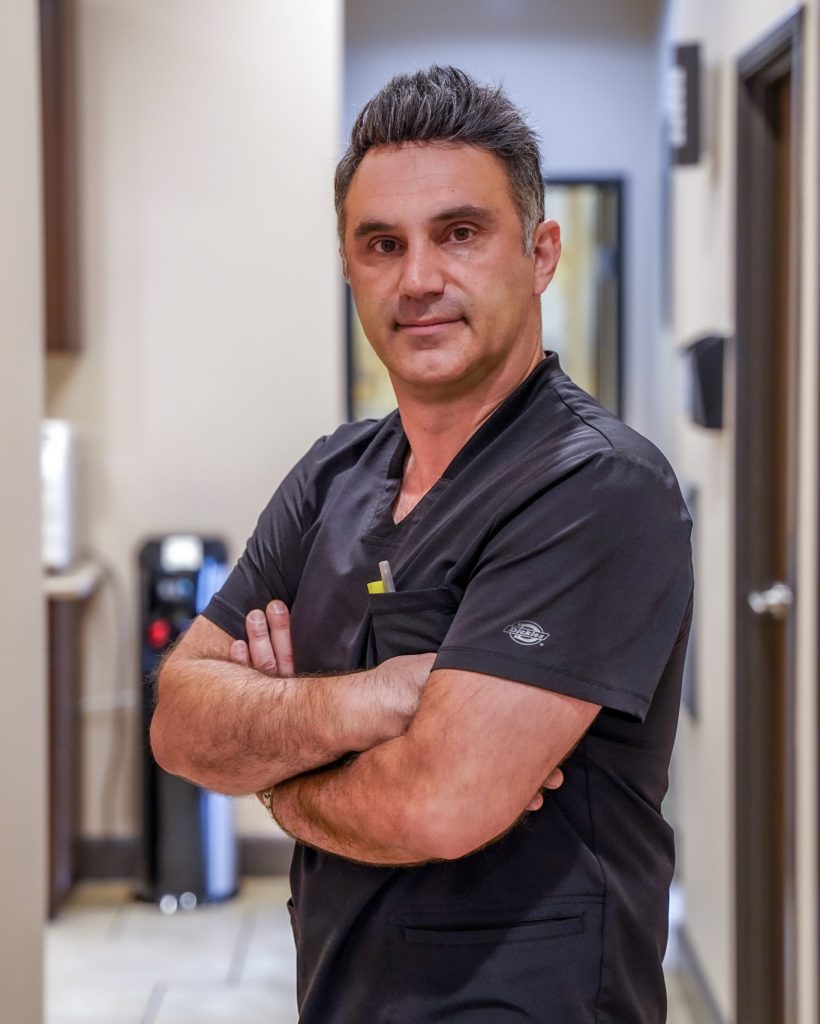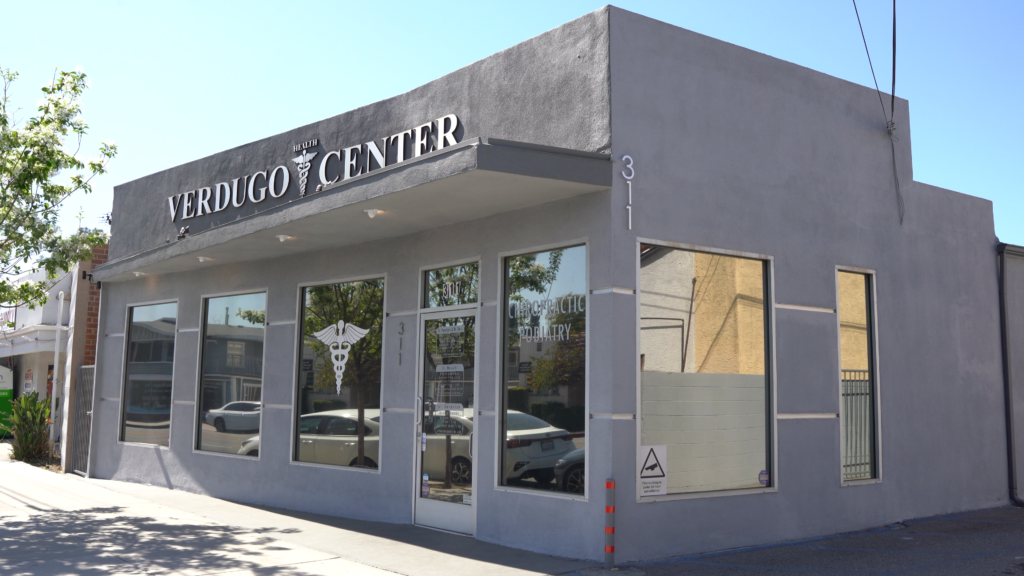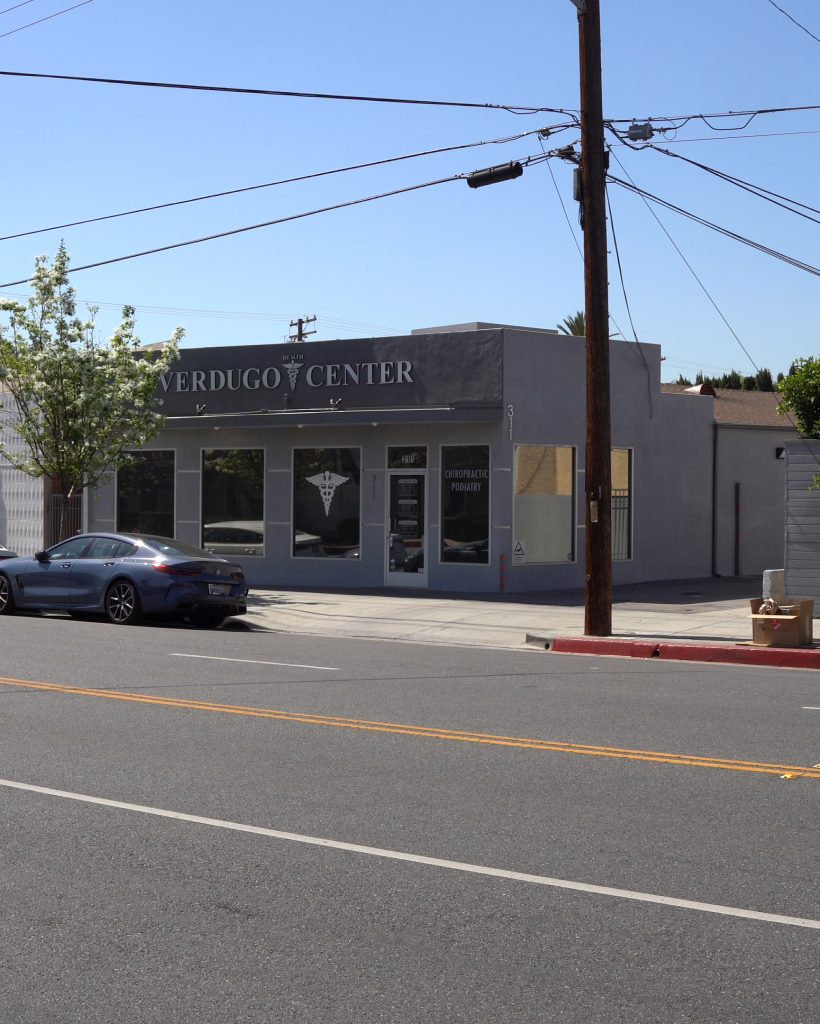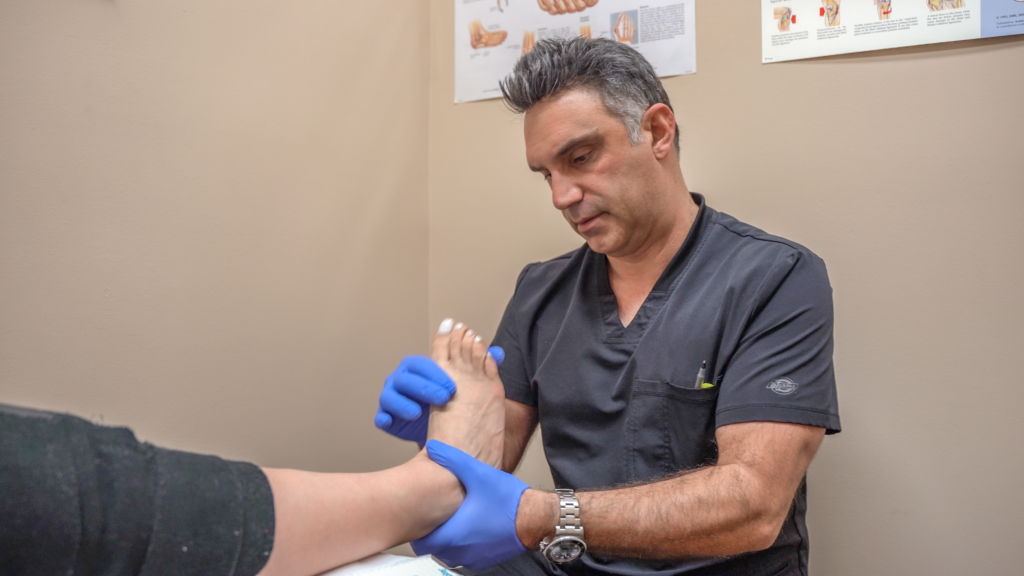Allen Massihi DPM
Allen Massihi has been providing podiatry services to the Glendale, Los Angeles, and Palmdale areas.


About Dr. Massihi
Dr. Allen Massihi strives to provide excellent podiatric services.
Dr. Allen Massihi has years of experience caring for various foot and ankle-related conditions, including flatfoot, foot pain, fractures, bunions, hammertoe, nerve pain, neuromas, and ingrown toenails.
- Providing services to three central locations: Glendale, Carson, and Palmdale
- Specializing in diabetic foot disorders
- Successful treatments for all common foot disorders
Happy Patients
Years Of Experience
Doctors in our network
Locatons to Serve you
Medical Services
What we offer
Hammertoe
Hammertoes are toes with an unusual bend in the middle joint.
What is a hammertoe?
Hammertoes are toes with an unusual bend in the middle joint. The tip of the toe points downward while the middle joint is angled upward. This causes increased pressure and irritation on the tip of the toe and the affected joint.
Continuous rubbing of these areas on your shoes can be uncomfortable and may lead to the formation of calluses or corns. Hammertoes may make it difficult to find shoes that fit comfortably, too.
What causes hammertoe?
While there isn’t a specific cause of hammertoes, a variety of factors contribute to their formation. Possible contributors include:
- Wearing shoes that are too small or have a short toe box
- Running or other sports that force your toes forward against the front edge of your shoe
- Wearing high heels
- Tight muscles in the feet and calves
Some cases of hammertoes have a genetic component, and you may have a parent or relative with hammertoes.
How do podiatrists treat hammertoes?
There are two types of hammertoes: flexible and rigid. Flexible hammertoes can be straightened by applying gentle pressure with your hands, while rigid hammertoes can’t be straightened.
Depending on which type you have, the team determines which treatment options are best for you.
In most cases, conservative care is enough to straighten your toes or sufficiently reduce the bend so you can wear shoes comfortably.
Conservative therapies include bracing or taping, wearing toe separators or other medical devices to stretch and straighten your toes when you sleep, and exercises and stretches to address any muscle imbalances in your feet and legs that are contributing to your hammertoes.
The team also treats any calluses, corns, or sores that have developed due to your hammertoes. It’s best to avoid filing or applying over-the-counter corn remover pads, which can increase your risk of infection. The team gently treats these symptoms so you can feel more comfortable and enjoy attractive feet again.
Diabetic Wound Care
Diabetic wounds are open sores that appear in about 15% of people with diabetes.
What is diabetic wound care?
Diabetic wounds are open sores that appear in about 15% of people with diabetes. They commonly occur on the bottom of your feet. Dr. Allen Massihi DPM offer diabetic wound care for non-healing wounds so you can prevent serious complications, such as infection or the need for amputation.
What are the risk factors for diabetic wounds?
Anyone with diabetes can develop diabetic wounds, especially those who use insulin. Your risk also increases with diabetes-related eye, kidney, and heart problems. Other risk factors include alcohol use, tobacco use, and being overweight.
Nerve damage linked with untreated diabetes may cause you to lose feeling in your feet, which can lead to injuries and non-healing foot ulcers. Having vascular disease complicates foot wounds by reducing your body’s ability to heal and increasing your risk of infection.
How does my podiatrist diagnose diabetic wounds?
During an evaluation at Dr Allen Massihi, DPM, your provider discusses your symptoms and medical history. They complete a physical examination and assess foot health and non-healing wounds before developing an effective treatment.
What are common diabetic wound care treatments?
The experts at Dr. Allen Massihi, DPM offer a variety of diabetic wound care treatments, including:
- Removing wound pressure
- Wound cleaning
- Dead tissue removal (debridement)
- Topical medications and dressings
- Oral medications
- Casting or bracing
- Skin grafts
- Blood sugar management
- Minor surgical procedures
- Laser treatments
- Diabetic shoes or orthotics
- Platelet-rich plasma (PRP)
PRP uses growth factors from your blood to stimulate your body’s natural ability to generate new cells and heal.
How can I reduce my risk of diabetic wounds?
Ways to reduce the risk of developing diabetes-related foot wounds include eating healthy foods, maintaining a healthy body weight, getting regular exercise, and taking diabetes medications as prescribed to control blood sugar.
Check your feet regularly, and see your podiatrist for routine foot evaluations if you have diabetes. Avoid walking around barefoot, especially in communal areas. Wear comfortable shoes that fit properly, and avoid smoking and drinking alcohol.
In addition to controlling your blood sugar, manage high cholesterol to reduce the risk of diabetes-related complications.
To learn more about diabetic wound care or take advantage of this treatment, call the offices of Dr. Allen Massihi, DPM, or schedule an appointment online today.
Ingrown Nail
An ingrown nail develops when your toenail grows into the surrounding skin instead of out and away from your toe.
What are ingrown nails?
An ingrown nail develops when your toenail grows into the surrounding skin instead of out and away from your toe. That causes your toe to become red and irritated, increasing the risk of infection and other complications.
Ingrown nails usually aren’t a concern, but if you have poor circulation, it’s important to seek professional treatment at Dr. Allen Massihi, DPM.
What are the symptoms of ingrown nails?
Symptoms of ingrown nails include:
- Red, swollen skin
- Pain
- Bleeding
- Oozing pus
- Fluid building up around the toe
If you have an ingrown toenail, you might also experience pressure or general discomfort when wearing socks or shoes.
Who is at risk of ingrown nails?
People of all ages experience ingrown nails, but there are several factors that increase your risk, including:
- Not cutting your toenails properly
- Wearing tight shoes
- Injuring your toenail
- Having unusually curved nails
Some people are more susceptible to ingrown toenails. For example, if your parents experience them, you’re more likely to as well.
How are ingrown nails diagnosed?
To diagnose an ingrown nail, your provider asks about your symptoms and physically examines your toe. The symptoms of an ingrown nail are visible to the eye, so there are rarely any tests necessary. If your provider suspects an infection, they might order X-rays to determine its severity.
How are ingrown nails treated?
Treatment of ingrown nails depends on the severity of the condition. If the ingrown nail is mild, your provider might recommend lifting it with a piece of cotton or a toothpick. Lifting the nail allows it to grow out and away from your toe.
If you have an ingrown nail that’s infected, your provider might recommend partially or completely removing it. The team at Allen Massihi DPM offers treatment of ingrown nails on an outpatient basis.
What is recovery like after treatment for ingrown nails?
After treatment for an ingrown nail, keep your toe clean, dry, and bandaged. Take any medication as prescribed and wear comfortable shoes that allow your toe to heal properly. If your nail was partially removed, it should grow back in the weeks following surgery.
Bunions
A bunion is a bony bump at the base of your big toe. Bunions develop when the bones of your foot are pushed outward and create a bulge.
What’s a bunion?
A bunion is a bony bump at the base of your big toe. Bunions develop when the bones of your foot are pushed outward and create a bulge.
Bunions tend to form slowly over time but can eventually make it hard to wear shoes comfortably. Calluses or corns may form on the skin over the bunion if it’s left untreated.
The team at Dr Allen Massihi DPM recommends early treatment for bunions as soon as you notice a bump forming. This can help you avoid pain and the need for surgery if the bunion becomes severe.
What causes bunions?
While the exact cause of bunions is unknown, it’s possible for bunions to form when your big toe is repeatedly pushed in toward your second toe.
This may be due to wearing poorly fitting shoes, shoes with tight or pointed toe boxes, or high heels. Some medical conditions, like rheumatoid arthritis, increase your risk of developing bunions.
Some cases are caused by genetic components. If this is the case, you may be at a higher risk for other foot and ankle conditions like hammertoes or inherited foot deformities, too.
How can I prevent bunions?
The best way to prevent bunions is to wear shoes that fit well and don’t pinch your feet or press your toes together. If you need to wear specific shoes for your job or playing sports, the team offers custom orthotics to prevent pain.
How do podiatrists treat bunions?
The Offices of Dr. Allen Massihi, DPM offers both conservative and surgical treatment for bunions. In most cases, conservative treatment is enough to reduce the discomfort and appearance of bunions. Possible conservative treatments include:
- Wearing properly fitting shoes
- Padding to avoid irritation when wearing shoes
- Taping or bracing the big toe for better alignment
- Special stretches and exercises to strengthen your feet
When surgical correction of a bunion is needed, the team explains which approaches would work best for you to decrease your discomfort and help you get back to normal as quickly as possible.
Custom Orthotics
Orthotics are customized medical devices that are created to fit the unique shape of your feet for relief from the pain associated with foot and ankle injuries, foot deformities, and medical conditions like diabetes.
What are custom orthotics?
Orthotics are customized medical devices that are created to fit the unique shape of your feet for relief from the pain associated with foot and ankle injuries, foot deformities, and medical conditions like diabetes.
At Dr. Allen Massihi, DPM, the team offers custom orthotics and ankle braces to support optimal foot and ankle health, whether you’re looking to recover after an injury, feel more comfortable on your feet, or get better support for playing sports.
When are custom orthotics recommended?
The team recommends orthotics for men and women who have:
- Bunions
- Hammertoes
- Plantar fasciitis
- Diabetes
- Flat feet
- High arches
Custom ankle braces can help if you have recurring ankle sprains or need support after a foot or ankle fracture or surgery.
What’s the process for getting custom orthotics?
To begin the process for ordering orthotics, you sit down with your doctor to discuss your foot or ankle issues, injury history, and lifestyle to determine which type of orthotic is best for you. They then use 3D scanning equipment to create a model of your feet.
Using customization software, the team assesses the 3D model of your feet to create your orthotics. Once the software model is complete, the team orders your orthotics from the lab, which takes 2-3 weeks to assemble. You get a call or email when your orthotics are ready for pickup.
When should I wear custom orthotics?
The team recommends wearing your orthotics for 1-2 hours at a time for the first week to get used to them. Over the next couple of weeks, you can work up to wearing your orthotics all day. Some mild soreness in your feet and ankles is possible as you adapt to wearing the orthotics.
The team provides orthotics for all types of foot and ankle issues and may recommend one or more pairs of orthotics, depending on your situation.
Orthotics can be worn in the regular shoes that you wear for work or running errands, or in specific shoes, like ballet flats, work boots, or dress shoes.
Orthotics can be made for all of your athletic shoes, including running shoes, cleats, and shoes for special sports, like tennis or weightlifting.
If you have diabetes, orthotics can help protect your feet throughout your day, whether you need orthotics for work or want a pair for your slippers or sandals.
Fungal Infections
Dermatology includes the evaluation, diagnosis, and treatment of skin conditions related to your feet or ankles
What is dermatology?
Dermatology at Dr. Allen Massihi, DPM includes the evaluation, diagnosis, and treatment of skin conditions related to your feet or ankles. The expert podiatry team offers a variety of treatments for skin problems you or a family member may encounter.
What are common dermatology conditions?
The podiatrists at Dr. Allen Massihi, DPM treat a wide range of dermatology issues, including:
- Plantar warts
- Toenail fungus
- Diabetic wounds
- Ingrown toenails
- Bunions
- Athlete’s foot
- Rashes
- Calluses
- Blisters
- Corns
- Moles
Treatment can restore the health and appearance of your feet and ankles and reduce the risk of infections and other complications.
What are the risk factors for dermatology-related foot problems?
While dermatology problems can happen to anyone, some factors increase your risk of experiencing them. Examples include:
- Diabetes
- Allergic reactions
- Nerve damage
- Improper footwear
- Walking barefoot in communal areas
- Not keeping your feet clean or dry
- Not trimming your toenails straight across
Keeping your feet clean and dry, wearing comfortable shoes, maintaining a healthy weight, trimming your toenails regularly, and properly managing diabetes are ways to reduce your risk of dermatology problems in your feet.
How does my podiatrist diagnose dermatology issues?
To determine which type of dermatology problem you may have, the podiatry team reviews your medical history, discusses your symptoms, and evaluates your feet and ankles during a physical exam.
They check your vital signs and may recommend that you undergo blood tests, skin biopsies or swabs, X-rays, or other procedures to diagnose your condition and develop an effective treatment.
What are common dermatology treatments?
Common dermatology treatments available at Dr. Allen Massihi, DPM include:
- Oral or topical medications
- Bandaging
- Wart, callus, mole, or corn removal
- Lifestyle changes
- Ingrown toenail removal
- Debridement (removing dead skin tissue)
- Skin grafts
- Platelet-rich plasma (PRP)
- Laser treatments
- Minor surgery
- Wearing comfortable shoes
The Dr. Allen Massihi, DPM team personalizes dermatology treatments to restore your foot health and reduce the risk of complications.
Open for Appointments
Press the button now to schedule a consultation at one of our offices.
We gladly accept Workers Comp and Personal Injury Cases
Dr Allen Massihi accepts personal injury and workers comp cases.
Call our dedicated Workmans compensation department to get started today!
Direct Line: 818-267-6623
Direct Fax: 626-531-6964
Our Offices
Our Professional Staff ensure you receive the best care and attention.
Our professional staff are courteous and attentive the moment you step in out office. From initial patient paperwork, to scheduling and working with your daily routines, our staff understand the importance of explaining how this process is.


Testimonials
What Patients Say About Us
Help & FAQ
General Question
Below are some of the most common questions we receive. Feel free to contact our office to get any other info not below. We are more than happy to take your call and answer any questions.
Rest Assured, your initial consultation will be with Dr. Massihi or one of his associate doctors in podiatry. The Doctor will take this time to diagnose the issue and explain the process.
Appointments can be made via the online contact form at the bottom of the page, or by calling our offices and speaking to a scheduling coordinator.
We accept a large variety of insurances.
Medicare, Medicaid. For HMO we accept:
Regal, Lakeside, Adventist Health.
We also accept PPO Blue Shield Cross and United Health.
We also accept cash patients.


Contact Us
Let's Get In Touch
Visit us at any of our locations
Working Hours
- Mon - Fri : 9.00 A.M - 5.00 P.M
- Sat : 9.00 A.M - 2.00 P.M
Dr. Allen Massihi, DPM
Request an. Appointment
Please use the contact form above to request an appointment
Dr. Allen Massihi, DPM. Website Design by Complete Technical Solutions Inc.
Copyright © 2022 All rights reserved.



